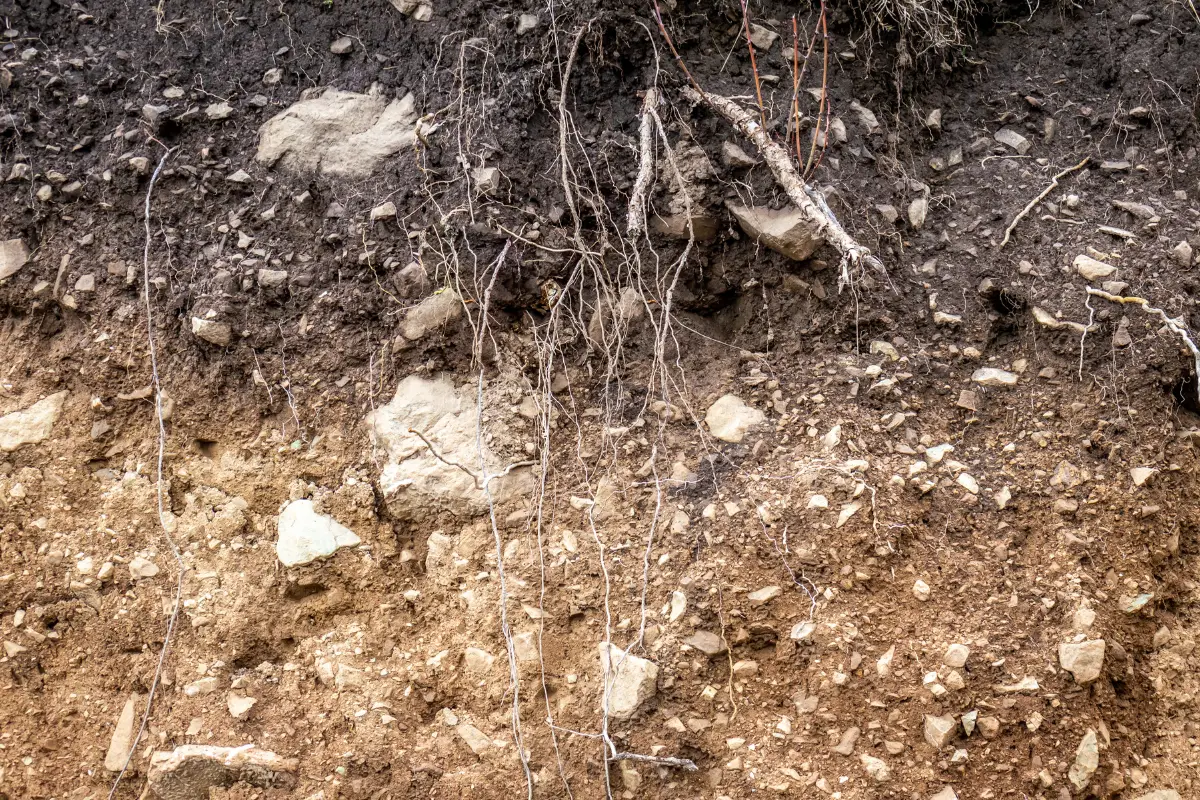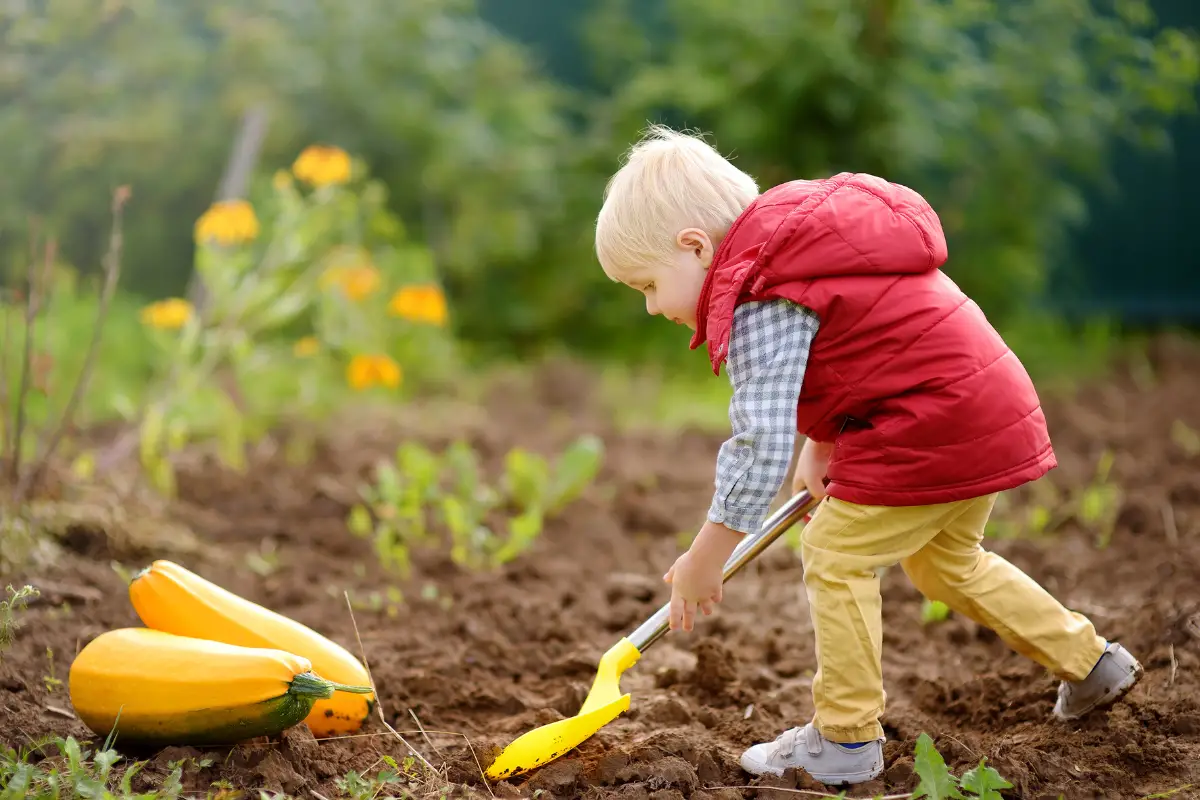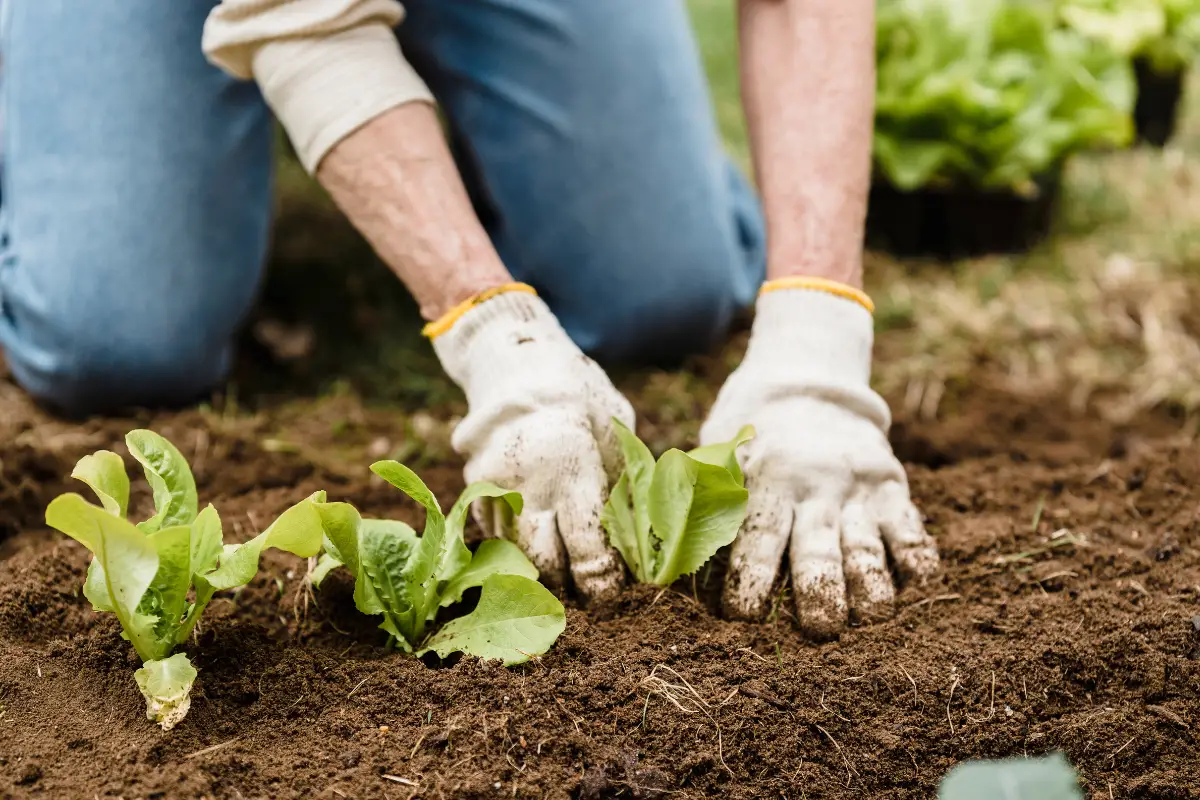Comfrey has a variety of uses in the garden, including mulch, compost activation, plant manure, adding nutrients for seedlings, and more.
It’s a great additive to organic gardens, with benefits including better compost, better fertilization, and an eco-friendly alternative to other types of mulch and manure.
Its main downside is that the herb contains some substances, such as pyrrolizidine alkaloids, that are toxic to the liver when ingested or absorbed through the skin.
Below, we explore the benefits and uses of comfrey in gardens, touching on precautions to take when handling or growing this herb.
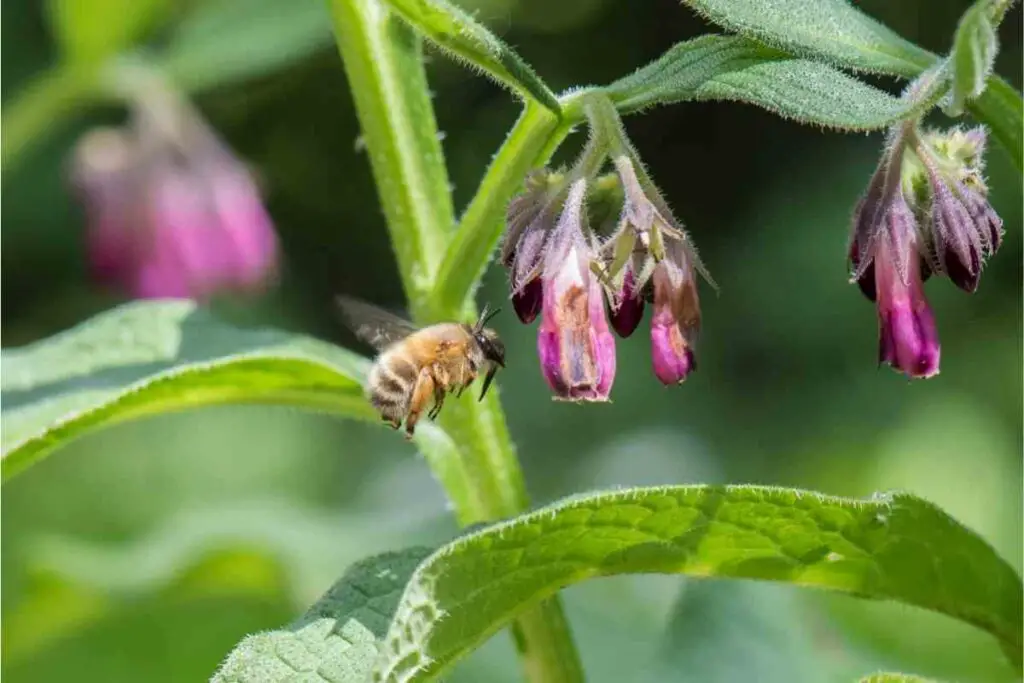
Table of Contents
What Are Some Ways I Can Use Comfrey In The Garden?
The main uses for comfrey in the garden include:
- Organic mulch
- Fertiliser (as compost tea, plant manure, or nutritional boosts for seedlings)
- Soil conditioning
- Compost activator
- Topical application to weak or damaged tree trunks
- Plant spray/feed
Comfrey Mulch
Mulch is a common use for comfrey leaves. You can easily make it at home by chopping up the leaves and placing them over the soil that you want both covered and fertilized. If you already grow comfrey, then it’s a cheap way to mulch your garden beds.
Comfrey fertilizer
The second way to use comfrey is as a fertilizer. There are several ways to do this – namely, as green manure, compost tea, or leaves placed under the soil. Comfrey compost tea helps to improve the growth of vegetables. Pour it over the soil when the plants are mature.
You can also place comfrey leaves beneath the soil where seedlings are growing to boost their growth and safeguard them from disease.
Or, you can fertilize your garden with comfrey by turning the plant into green manure. Instead of using solely animal waste as manure, you can cut back on comfrey plants.
Turn them into the soil as you would do with regular manure before beginning gardening.
Prices pulled from the Amazon Product Advertising API on:
Product prices and availability are accurate as of the date/time indicated and are subject to change. Any price and availability information displayed on [relevant Amazon Site(s), as applicable] at the time of purchase will apply to the purchase of this product.
Alternatively, you can purchase our recommended 100% Comfrey Plant Feed and Soil Conditioner. This is a great product for people that don’t have as much time on their hands and want to get the same great results. Check Out Our Link Above.
Soil Conditioner
Another use for comfrey involves using comfrey as a live plant. If you have thick or clay-rich soil that you want loosening, you can plant comfrey in the area.
The root system of comfrey will break up the hard soil and promote better irrigation. This leads to more arable soil for future gardening ventures.
Compost Activator
Comfrey also works wonders to activate compost heaps. Compost piles need to get bioactivated before the decomposition process can start.
Adding crushed comfrey leaves and water to a compost bin will give it a speed boost. You can then achieve compost ready for use much sooner. Furthermore, the comfrey enriches the nutrients in the mixture.
Topical Application To Weak or Damaged Tree Trunks
Finally, you can rub fresh comfrey leaves (green leaves) onto the trunk of a tree that is weak or struggling.
The juice of the leaves will aid growth and maturity, helping the tree to begin fruiting again.
If you want to make this application even more effective, you can also add comfrey leaves to the soil surrounding the tree trunk.
Plant Spray/ Feed
Finally, comfrey works well as plant food or spray. Think of this as similar to using a fertilizer spray from a garden store.
It’s also similar to compost tea since you will steep the leaves in hot water before using them. Add this mixture to a spray bottle, and spray it on the plants you want to feed.
You can even spray this mixture onto the leaves of the plants you want to feed. Just take care, not to over-spray, which could lead to moisture-based fungus or disease.
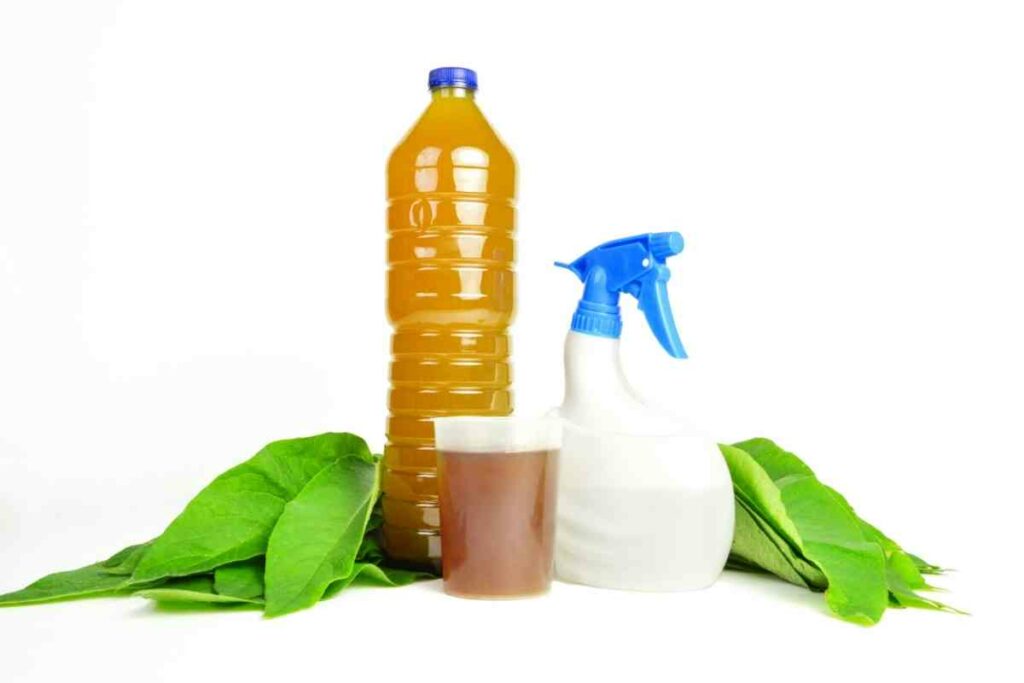
What Are The Benefits Of Using Comfrey In The Garden?
Comfrey has benefits ranging from fertilizer value to the ability to activate compost piles. Most notably, though, comfrey has the benefit of being an affordable gardening tool.
While animal manure can cost you money per bag, a garden where you already grow comfrey plants supplies you with free manure.
Furthermore, it has the same cost-effective ability when using it as mulch and compost tea.
Comfrey is also a resourceful and environmentally friendly alternative to store-bought fertilizers and compost. By using just the comfrey that you have growing in your garden, you don’t waste any materials.
And finally, a big benefit of using comfrey in the garden is that it saves you from doing as much manual labor. When you grow comfrey, its roots break up the soil and prepare it for gardening so you don’t have to.
What Cautions Should I Take When Using Comfrey In The Garden?
Although comfrey is beneficial, you need to take health precautions when working with it. Comfrey contains poisonous chemicals such as pyrrolizidine alkaloids, which are harmful to the liver and can be deadly.
This is why comfrey is no longer sold in the United States. You can still buy it in the UK, but you must be careful.
Make sure to never ingest comfrey. This means you’re better off wearing a face mask or mouth covering when gardening with it. Further, avoid topical contact with broken skin and wounds by wearing long gloves and long sleeves and pants.
Limit your contact with the plant as much as possible, except when you’re applying it to the garden.
Is Comfrey Good For Organic Gardening?
Yes, comfrey is an excellent addition to an organic garden. It’s a natural alternative to store-bought fertilizer, and it contains phosphorus, potassium, and nitrogen.
These three elements are essential for plant growth, so adding this to your garden is a great enhancement.
How Can I Make My Own Powdered Comfrey To Use In The Garden?
One final way to make use of comfrey in the garden is to powder it. You can easily do this at home.
Some people air-dry comfrey leaves, while other people use dehydrators. Dried comfrey can then get pulverized and powdered. Once you powder it, store it in an air-tight location.
It makes for a strong concentration of fertilizer that you can mix into homemade soil or manure. You actually don’t need too much of it to achieve the desired effect. Furthermore, it will decompose fairly quickly compared to fresh comfrey leaves.












